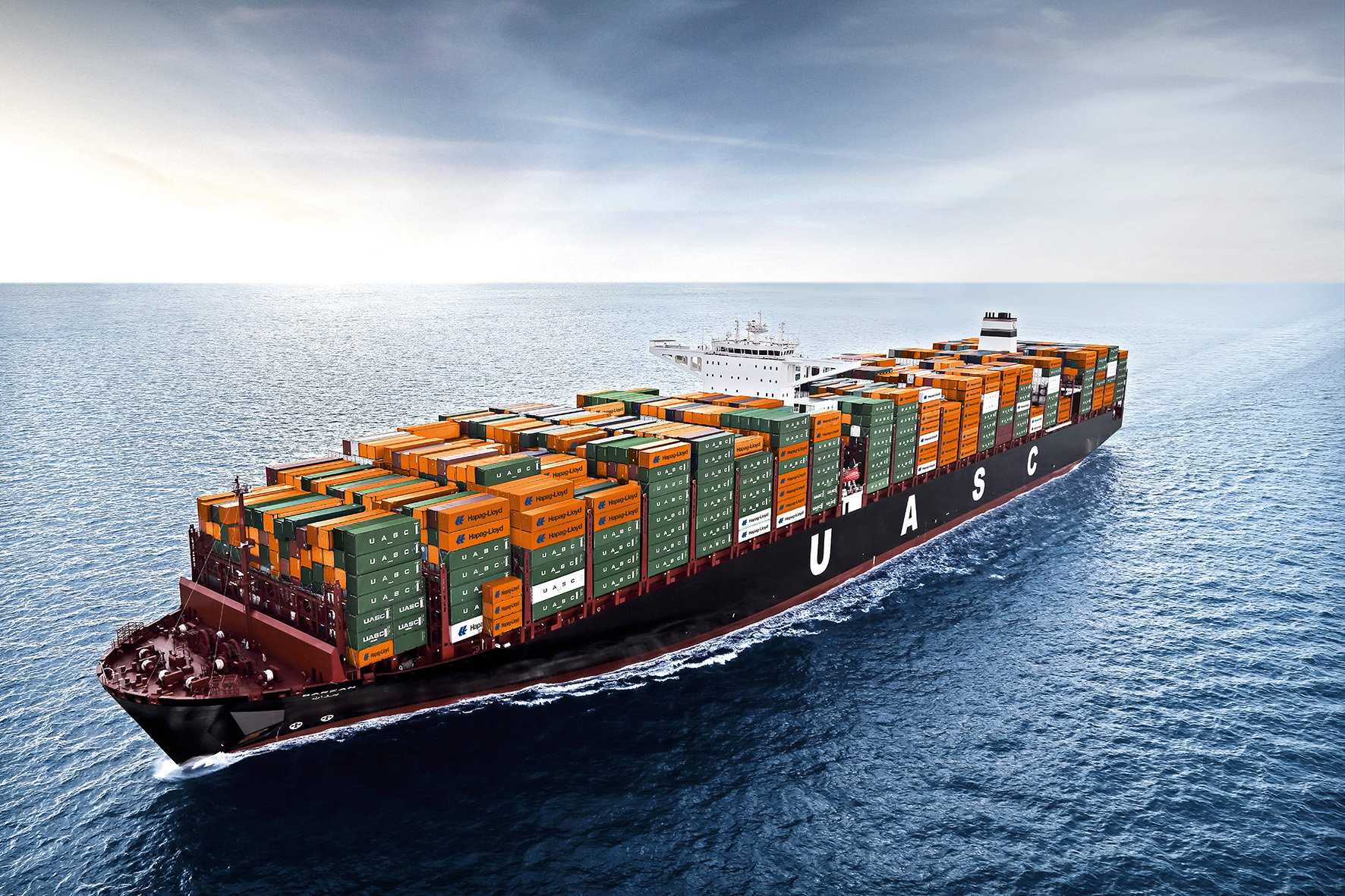Profitable and green: innovative hull maintenance helps Hapag-Lloyd reduce emissions and cut costs

As part of its continued effort to drive sustainability in the maritime industry, German container line Hapag-Lloyd succeeds in reducing both emissions and operational costs through implementing Shipshave’s In Transit Cleaning of Hull (ITCH) solution, with the results documented and confirmed by class society DNV.
In order to independently verify the benefit of proactive fouling removal, Shipshave in cooperation with Hapag-Lloyd commissioned DNV to analyse operational performance data from two Hapag-Lloyd container ships equipped with the ITCH solution. The vessels are of 8,749-TEU and 18,800-TEU, respectively, of different ages and with different trading profiles.
The analysis included data harvested from both vessels over a 17-month period, allowing for an in-depth consideration of 'trend over time' to examine whether Hapag-Lloyd's proactive approach to hull cleaning delivered a representative and consistent result. In its report following the assessment, DNV confirms that both ships achieved a significant fuel saving and reduction in emissions based on improved energy efficiency.
According to the DNV study, the actual reduction in fuel and emissions varied between them due to their different dimensions and operating profile, but both were impressive. One saw a staggering 16% improvement in performance equal to a reduction in fuel consumption of approximately 8.4 tons per day – which equates to removing the emissions of over 4,900 fossil-fuel-driven cars over the same time period. The other vessel showed better initial performance but still achieved a reduction in fuel consumption of just under 5%. The performance was maintained over time by regularly using the ITCH unit.
These key figures clearly demonstrate how Hapag-Lloyd is maintaining its leadership in sustainability and efficiency, managing fouling to reduce drag and lower emissions for long-term benefits.
“We are very pleased that this analysis from DNV confirms our internal assessment of the result achieved by the implementation of ITCH. This method reflects our proactive approach to reducing emissions caused by biofouling,” said Nikhilesh Bhatia, Director Fleet Energy Efficiency, being responsible for the ITCH project at Hapag-Lloyd.
Over the assessment period, the ITCH system successfully managed hull biofouling, by initially reducing resistance. Additional fouling would accumulate over time without repeated hull cleaning. Proactive grooming prevents future degradation of vessel performance due to fouling re-growth. This long-term effect was not accounted for in the analysis and is likely to underestimate the total economic benefit of proactive cleaning with ITCH.
Nevertheless, Return on Investment (ROI) from the ITCH system for the two vessels was under 3 months at sea in these cases.
“The findings of this case study emphasize the critical role of minimizing biofouling in reducing greenhouse gas emissions from shipping. As outlined in our recent Maritime Forecast to 2050 report, regular or proactive hull cleaning remains one of the most effective strategies to achieve this goal," said Dr. Uwe Hollenbach, Senior Principal Consultant at DNV Maritime Advisory, Ship Performance Center, Hamburg.
Hapag-Lloyd’s Nikhilesh Bhatia said: “This is an excellent example of how Hapag-Lloyd promotes sustainable maritime transport, by implementing innovative technology leading to reduced emissions and improved financial performance both in the short and long term.”
In summary, Hapag-Lloyd's commitment to sustainable shipping through innovative green technologies such as ITCH show the company's dedication to responsible shipping practices. With ITCH, prioritising sustainability with a clean hull will lead to a healthier ocean, planet, and strengthen the bottom line.
For more information contact:
Hapag-Lloyd
Nikhilesh Bhatia
Director Fleet Energy Efficiency
Mail: Nikhilesh.Bhatia@hlag.com
Shipshave
Richard Aleksander Tjosvoll
Chief Sales Officer
Shipshave AS
Tel: +47 928 24 498
Mail: richard.tjosvoll@shipshave.no
About Hapag-Lloyd
With a fleet of 292 modern container ships and a total transport capacity of 2.3 million TEU, Hapag-Lloyd is one of the world’s leading liner shipping companies. In the Liner Shipping segment, the Company has around 13,700 employees and 399 offices in 139 countries. Hapag-Lloyd has a container capacity of 3.4 million TEU – including one of the largest and most modern fleets of reefer containers. A total of 113 liner services worldwide ensure fast and reliable connections between more than 600 ports on all the continents. In the Terminal & Infrastructure segment, Hapag-Lloyd has equity stakes in 20 terminals in Europe, Latin America, the United States, India and North Africa. 3,000 employees are assigned to the Terminal & Infrastructure segment and provide complementary logistics services at selected locations in addition to the terminal activities.
About Shipshave
Shipshave is a technology company dedicated to proactive hull performance management solutions for optimised performance, reduced cost and improved sustainability in the shipping industry. It is headquartered in Stavanger, Norway and with offices in Singapore and Athens, Greece.
Established in 2019 it has quicky established itself as a provider of innovative solutions for hull cleaning with over 100 installations across 30 ship owners, many of which are well renowned names in the maritime industry.
Its flagship product, Shipshave ITCH, is a semi-autonomous robot for in transit cleaning of hulls. Enabling crew to clean and owners to take control of their hull performance.
About Shipshave ITCH
Shipshave ITCH is a semi-autonomous robot deployed by the crew. It is easy to operate and can be implemented immediately as it requires no physical installation on the vessel. Deployed regularly to remove fouling from the hull it allows ship owners to better manage vessel performance and energy efficiency. By using the flow of the water across the hull it moves up and down on the hull while gently brushing away fouling during transit.
Discover how Shipshave’s ITCH solution can help reduce emissions, click here



